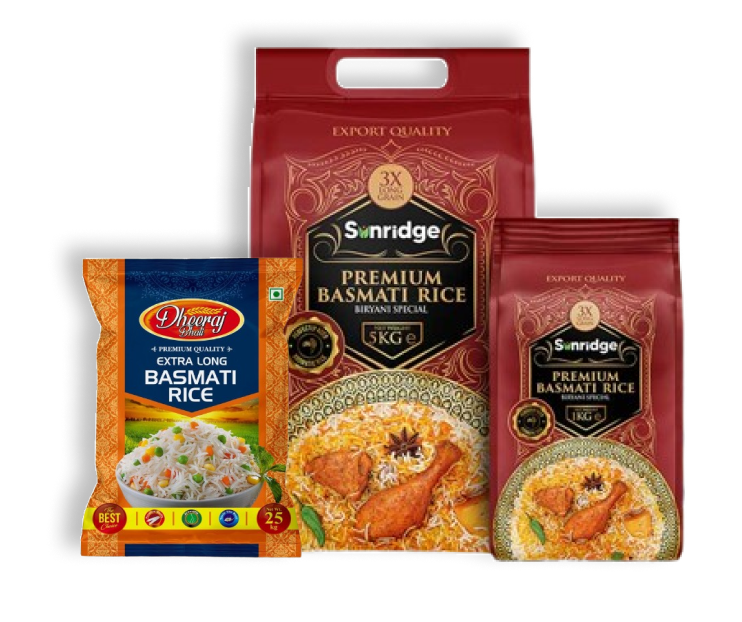Basmati D-98 Rice
The Perfect Balance of Tradition and Quality – A Trusted Basmati Choice.
Basmati D-98 Rice
The Perfect Balance of Tradition and Quality – A Trusted Basmati Choice.
Basmati D-98 Rice, also known as PK-198, is a unique variety of basmati rice, celebrated for its authentic flavor, medium-long grains, and light, fluffy texture when cooked. Sourced from the Sindh and Punjab regions of Pakistan, it represents a blend of traditional and modern farming practices.
Naturally aged to bring out its rich taste and aroma, D-98 is an ideal choice for both traditional dishes like biryani and pulao and modern recipes requiring premium-quality rice. This variety is well-regarded for its affordability and versatility, making it a favorite for importers seeking a balance between quality and cost-effectiveness.


Technical Specifications
Specification
Grain Length (uncooked)
Moisture Content
Broken Percentage
Color
Aging
Packaging Options
Shelf Life
Details
6.8–7.0 mm
<12%
<2%
Polished White
Naturally aged 12+ months
5kg, 10kg, 25kg, or custom
2 years
Super Kernel Basmati Rice
is versatile and ideal for
- Biryani and Pulao: Perfect for festive and gourmet dishes.
- Everyday Cooking: Adds a touch of luxury to daily meals.
- Catering and Restaurants: Consistently delivers top-notch quality for bulk use.
Packaging and Customization
We understand the unique needs of our clients and offer customizable solutions:
- Standard Packaging: Available in 5kg, 10kg, and 25kg sizes.
- Custom Branding: Personalize packaging with your brand logo and design.
Bulk Shipping: Tailored solutions for large orders to ensure safety and convenience.

Ready to Elevate Your Rice Imports?
Partner with Tujjar Global and experience premium-quality rice, ethical sourcing, and seamless global logistics.
Let’s Work Together to Bring the Best of Pakistan’s Rice to Your Market.
Sustainability and Ethical Sourcing
At Tijarat Global, sustainability is at the heart of our operations:
- Environmentally friendly farming practices to conserve water and reduce waste.
- Fairtrade partnerships with farmers, ensure they are paid fairly for their labor.
- Commitment to reducing our carbon footprint through efficient logistics.



